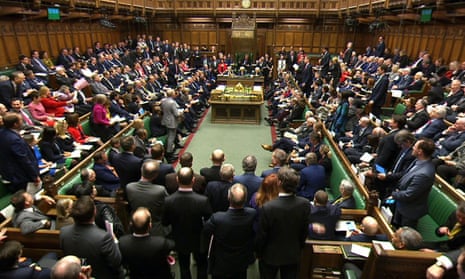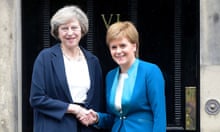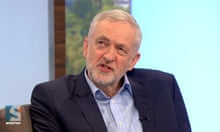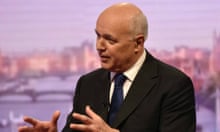Conservatives – 329 seats
Theresa May has drawn up her long-awaited bill giving No 10 permission to trigger article 50. She will now try to push it through the Commons and the Lords as soon as possible, possibly within two weeks.
Government whips will need to allow enough debating time for MPs to feel they have been given a chance to scrutinise and amend the bill, but ultimately will want the legislation to be passed quickly to stick to May’s self-imposed deadline of March for invoking Brexit.
The vast majority of the party will vote straightforwardly for Brexit at all stages of the passage of the bill. Only Ken Clarke, the former chancellor, has said he will vote against, with most MPs happy that May has now conceded on the point of publishing a white paper. But backbench Tory rebels – such as Nicky Morgan, for example – could potentially back or lay amendments that try to tie May to a softer Brexit.
Possible amendments could include seeking full tariff-free access to the single market or giving MPs a vote at the end of the process with the option of sending May back to Brussels to get a better deal.
Labour – 229 seats
Jeremy Corbyn’s position is to ask MPs to vote in favour of triggering article 50, although he will seek to amend the bill to secure protections for workers and more parliamentary scrutiny along the way.
However, a number of frontbenchers, especially those from remain-supporting constituencies, will find it difficult to do that. It is possible they will have to resign if Corbyn imposes a three-line whip as expected, or he may turn a blind eye to any rebels, depending on who they are and their reasons for voting against.
MPs may vote different ways at different stages of the process. About 20 to 30 will probably vote against the bill at first reading, and dozens more could abstain. The final result will probably depend on whether any amendments pass or the government concedes any more issues as it has with the white paper.
SNP - 54 seats
The SNP plans to vote against triggering article 50 and will lay as many as 50 amendments, including an assurance that May will seek the full agreement of the joint ministerial council of the devolved administrations of Scotland, Wales and Northern Ireland.
Liberal Democrats - nine seats
The party’s collective position is to vote against article 50 unless there is a promise of a second referendum on the eventual deal. It will also seek to amend the Brexit bill. A three-line whip will be imposed but it is not certain that all the party’s MPs will stick to the policy, given that three did not vote against invoking article 50 in December.
DUP - eight seats
The party supports Brexit and will be likely to back the government, effectively increasing May’s majority in the House of Commons.
Ukip - one seat
Douglas Carswell, the party’s only MP, will undoubtedly vote for Brexit. In fact, he has suggested the Commons or Lords should be dissolved if either takes the highly unlikely step of blocking article 50. Outside parliament, Ukip’s leader, Paul Nuttall, will probably try to present Labour as interfering with the Brexit process as he attempts to unseat the incumbent party in the leave-voting constituency of Stoke-on-Trent Central in a byelection.
Greens - one seat
Caroline Lucas, the Green MP, will vote against triggering article 50. The positioning could boost the party’s chances against Labour in seats such as Norwich South (held by the shadow business secretary Clive Lewis, who is thinking of defying the whip).
Plaid Cymru - three seats
The party’s three MPs oppose triggering article 50 and want to amend the bill to make sure the devolved administrations approve the final deal.
UUP - two seats
The UUP’s two MPs have confirmed that they will both be voting for the UK to leave the EU.
Independent Unionists - one seat
Sylvia Hermon has been strongly pro-EU in the past but her intention is unknown.
SDLP - three seats
The three SDLP members will vote against triggering article 50.









